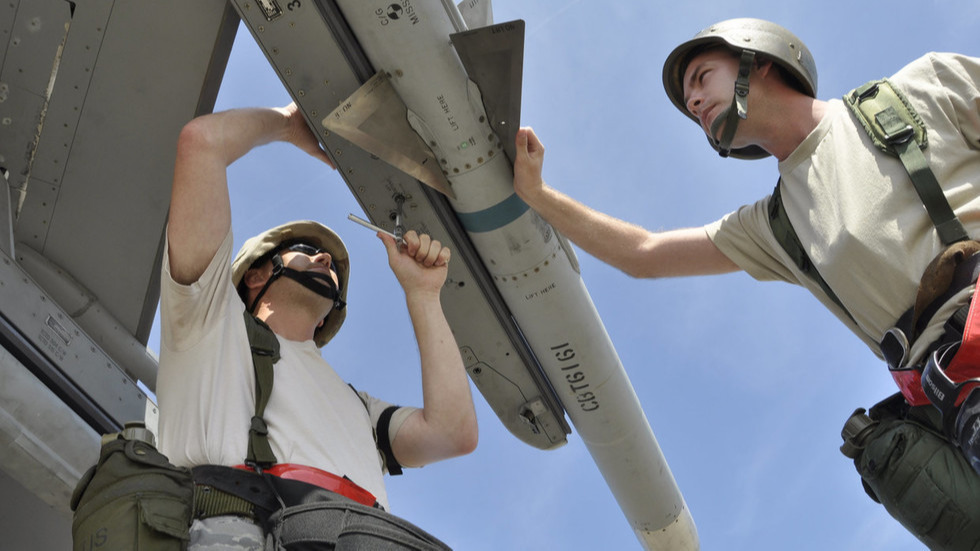
Members of the US Air Force engage the aft dampener on an AIM-120 AMRAAM missile © Flickr / US
Washington, November 5 (RHC)-- The U.S. State Department has approved Saudi Arabia’s request to buy up to $650 million worth of air-to-air missiles and related equipment from Raytheon, the former employer of U.S. Defense Secretary Lloyd Austin.
The Defense Security Cooperation Agency (DSCA) informed Congress on Thursday, as required by law, that the proposed sale will support -- what it called -- "U.S. foreign policy and national security” by “helping to improve the security of a friendly country that continues to be an important force for political and economic progress in the Middle East.”
The State Department has also implied that the missiles would be used against drones, which the Houthi rebels have used to great effect against the Saudi-led coalition that invaded Yemen in 2015.
Riyadh has requested to buy 280 Advanced Medium Range Air-to-Air Missiles (AIM-120C-7/C-8 AMRAAM), along with 596 of the LAU-128 Missile Rail Launchers (MRL), supporting equipment, spare parts, as well as technical and logistical support. The total estimated cost of the contract is $650 million.
The missiles would be used by Saudi Arabia’s fleet of F-15 fighter variants – which explains the MRL – as well as the kingdom’s Eurofigher Typhoons. The AMRAAM is a medium-range missile that uses “fire and forget” active-radar homing. The longest-ever recorded range for an AMRAAM kill has been 45km, achieved by a Turkish F-16 against a Syrian Air Force jet in March 2020.
If the kingdom goes ahead with the purchase, it would be a windfall for Raytheon. Army General Lloyd Austin retired from Central Command – which covers Saudi Arabia – to sit on the board of the Massachusetts-based missile-maker, before President Joe Biden nominated him to be the first Black U.S. secretary of defense.
This comes amid harsh criticism against Saudi Arabia for its military onslaught on Yemen. The kingdom, backed by the U.S. and regional allies, launched a war on Yemen in March 2015, with the goal of bringing the government of former Yemeni president Abd Rabbuh Mansur Hadi back to power and crushing the Ansarullah movement.
The war has left hundreds of thousands of Yemenis dead, and displaced millions more. It has also destroyed Yemen’s infrastructure and spread famine and infectious diseases. Yemeni armed forces and allied Popular Committees, however, have grown steadily in strength against the Saudi-led invaders, and left Riyadh and its allies bogged down in the country.

